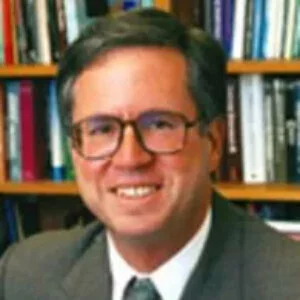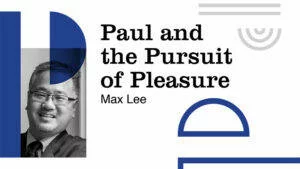 Theistic evolution is a theological interpretation of evolutionary biology as it is understood through evolutionary molecular biology, natural selection, and population genetics (the Modern Synthesis), as well as epigenetic inheritance, evolutionary-developmental biology (evo-devo), and convergent evolution, to name a few of the most important scientific contributions to the general field of evolutionary biology.
Theistic evolution is a theological interpretation of evolutionary biology as it is understood through evolutionary molecular biology, natural selection, and population genetics (the Modern Synthesis), as well as epigenetic inheritance, evolutionary-developmental biology (evo-devo), and convergent evolution, to name a few of the most important scientific contributions to the general field of evolutionary biology.
The central theological point of theistic evolution is that evolution is how God creates the diversity of species of life on earth. Where the natural sciences, using the lens of methodological naturalismNote: Methodological naturalism does not lead necessarily or inevitably to metaphysical naturalism (e.g., materialism and atheism), as writers such as Phil Johnson and other proponents of Intelligent Design unfortunately claim. (‘as far as possible explain natural states as the effects of natural causes’), sees characteristics in nature such as variation (e.g., random genetic mutations) and natural selection (e.g., organisms better adapted to their environment are more likely to survive and reproduce), theology, using such sources as scripture, tradition, reason and experience (e.g., Wesley’s quadrilateral), interprets the discoveries of science, including biological evolution, as the result of God’s loving and intentional action in, with, under, and through natural processes.
A Plurality of Voices
Theistic evolution includes a ‘rainbow’ of voices such as Pope John Paul II, Ian Barbour, Teilhard de Chardin, Ted Davis, Michael Dodds, Celia Deane-Drummond, Denis Edwards, John Haught, Philip Hefner, Martinez Hewlett, Ernan McMullin, Kenneth Miller, Jürgen Moltmann, Joshua Moritz, Nancey Murphy,Wolfhart Pannenberg, Arthur Peacocke, Ted Peters, Karl Rahner, and B. B. Warfield. I have developed a robust version over the past decades which highlights a specific way of thinking about divine action in nature which I call “non-interventionist objective divine action” (NIODA). Here the special action of God in and through nature (often called “special providence”) brings about “objective events” in nature which might not have happened without such divine action. Such special action is distinct from, and presupposes, God’s general, regular action in and through nature which brings about nature’s orderly regularity as described by the scientific laws of nature and referred to theologically as general providence (e.g., the seasons of the year). Such special divine action is “non-interventionist,” meaning that God acts in nature without blocking, suspending, or undercutting the normal regularities of natural processes (i.e., these divine acts are not “miracles” in the Humean/Enlightenment sense of violating the laws of nature or interrupting natural processes). Non-interventionist objective divine action does not conflict with science. Rather it accepts the discoveries of science, brings them into the domain of theology, and interprets them in terms of God’s action of ongoing creation in nature. Such divine action is not detectable by science, if by “detectable” we mean that these events fall outside the normal predictions of science. Events resulting from NIODA occur within the many domains of nature in which,God’s general, regular action in and through nature which brings about nature’s orderly regularity as described by the scientific laws of nature and referred to theologically as general providence. to the eyes of science and as described by the laws of nature, nature is inherently filled with chance and randomness and, which by inference, we can view as a domain of nature characterized by genuine, ontological indeterminism. Most importantly, we cannot ‘do the experiment’ and compare the way natural processes might have occurred if God had NOT so acted with how natural processes have in fact occurred. Putting it metaphorically, natural processes are the result of ‘God + nature’; we cannot take out ‘God’ and see, scientifically, what is left.
How does NIODA relate to theistic evolution? We know that genetic mutations are an essential part of evolution, one of several ways in which truly random events occur in biological organisms. If they bequeath increased fitness to the progeny in a population of organisms competing for finite resources, then natural selection may result in a change in this population, leading to microevolution within species and, in some cases, to macroevolution with the rise of new species. We also know that most forms of genetic mutations necessarily involve quantum processes, such as in the making or breaking of a hydrogen bond in the DNA molecule. Now quantum processes can be interpreted (following the “Copenhagen approach” of Niels Bohr and Werner Heisenberg) as representing real, “ontological indeterminism” and not just “epistemic ignorance” of underlying deterministic processes. In short, nature at the quantum level lacks sufficient causality to bring about these mutations. Instead, God acts together with nature to bring them about. In essence, God’s action actualizes one of several quantum potential outcomes in the process of mutation. In this way God’s action participates in bringing about objective changes in the gene pool without intervening in genetic processes. Thus contrary to atheistic claims that God cannot act in genetic mutations and thus cannot be involved in biological evolution, it is precisely in processes like these that God can act and do so without breaking the laws of nature or interfering in natural processes. In doing so, God remains the transcendent Creator of the universe and all its processes; contrary to some concerns voiced about NIODA, God does not, in fact, act “as” a natural cause, which would threaten to reduce God to a natural, secondary cause. In short, God creates the universe and all its processes ex nihilo (“out of nothing”), and God creates them such that at least at the quantum level these processes are inherently indeterministic, thus making God’s non-interventionist objective action possible. Quantum-based NIODA undercuts the charge of atheists that evolution undermines the possibility of divine action and it makes the program of Intelligent Design to insert an external Agent into nature and to challenge methodological naturalism entirely superfluous. Christians of all confessions can acknowledge evolution as the way God creates the diversity of life on earth and throughout the universe, and celebrate the beauty and complexity of evolutionary nature as God’s gift and as pointing to God’s glory.
May I add a word of clarification: I do not use the term “evolutionary creationism” as suggested by the question given me to address. Instead I support “theistic evolution,” a widely held theological interpretation of biological evolution. For a very helpful survey and assessment of the contributions of many Christian scholars to theistic evolution, see Ted Peters and Martinez Hewlett, Eschatology from Creation to New Creation: Conflict, Conversation and Convergence (Abingdon Press, 2003). I developed the robust form of theistic evolution in terms of NIODA (“non-interventionism/non-miraculous objective divine action”) in Cosmology from Alpha to Omega: The Creative Mutual Interaction of Theology and Science (Minneapolis: Fortress Press, 2008), Chapters 4-6. I am privileged to be an elected Fellow of the American Scientific Association, a mostly evangelical community of scientists which, broadly speaking, is supportive of theistic evolution and which rejects ID, let alone creationism. I understand that BioLogos prefers the term “evolutionary creationism” but I worry that it gives far too much credence to the dead ends and landmines of “creation science” (“scientific creationism”) and “Intelligent Design.” Finally, as a Christian theologian with grateful roots in both conservative and liberal Protestantism and some Roman Catholic scholarship, I accept the biblical miracles: in my approach they are best understood as manifestations in history of the coming eschatological New Creation (and not ‘miracles’ in the naïve view based in Hume as violations of the laws of nature). In particular, I fully accept the bodily resurrection of Jesus Christ, relying on the NT work of such scholars as N. T. Wright and Gerald O’Collins and the theologies of Jürgen Moltmann, Wolfhart Pannenberg, Ted Peters, and Karl Rahner. I have written extensively on the relation between Christian eschatology and scientific cosmology with deep appreciation for the writings of John Polkinghorne.







Comments
Be the first one to make a comment!